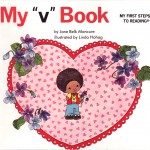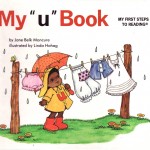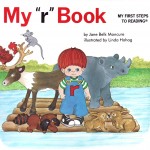 The letter V could be for visual skills or verbal, but we’ve done lots of verbal activities. At the beginning of the month of August, we started with A for auditory discrimination and memory. While visual discrimination and memory are the same idea, some children have much stronger visual skills than auditory ones. We all seem to prefer one channel over the others. Nevertheless, these are important skills for reading, later on. For instance, it’s important to be able to be aware of the difference between b and d, or u and n. Using resources that you have at home, when you are setting the table put out 2 forks and 1 spoon and ask your younger child which one is different. Or use 2 small spoons and 1 big one. When sorting the socks, match the ones that are the same. For fun, maybe tuck a baby sock in with the grown-up ones. The junk drawer likely has several items for memory games. Find 5-10, depending on the age and ability or your child, and look at all of them. Cover them up and see how many your child can name. Can you do as well as your munchkin? Count and see. To vary the game, have your child close his/her eyes and take one away. Which one is missing? Switch turns and have your child take one away for you. Add a few more items if it’s too easy, take away 1 or 2 if it’s too hard. How do your visual skills compare with your child’s?
The letter V could be for visual skills or verbal, but we’ve done lots of verbal activities. At the beginning of the month of August, we started with A for auditory discrimination and memory. While visual discrimination and memory are the same idea, some children have much stronger visual skills than auditory ones. We all seem to prefer one channel over the others. Nevertheless, these are important skills for reading, later on. For instance, it’s important to be able to be aware of the difference between b and d, or u and n. Using resources that you have at home, when you are setting the table put out 2 forks and 1 spoon and ask your younger child which one is different. Or use 2 small spoons and 1 big one. When sorting the socks, match the ones that are the same. For fun, maybe tuck a baby sock in with the grown-up ones. The junk drawer likely has several items for memory games. Find 5-10, depending on the age and ability or your child, and look at all of them. Cover them up and see how many your child can name. Can you do as well as your munchkin? Count and see. To vary the game, have your child close his/her eyes and take one away. Which one is missing? Switch turns and have your child take one away for you. Add a few more items if it’s too easy, take away 1 or 2 if it’s too hard. How do your visual skills compare with your child’s?


